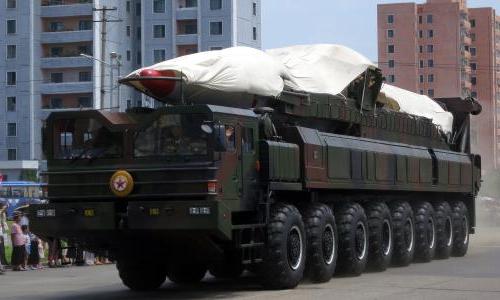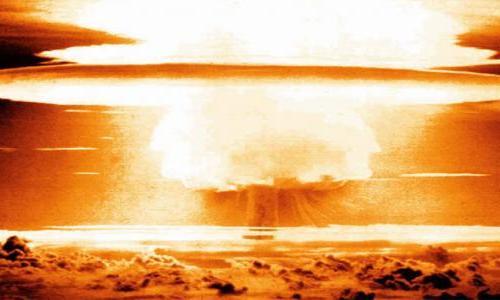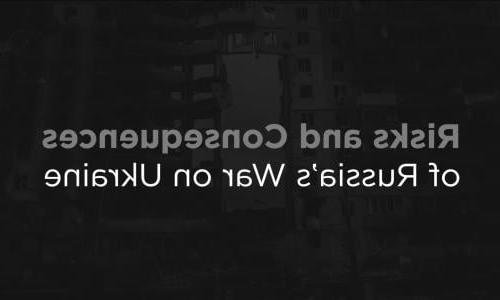目录表
The only way to completely eliminate nuclear risks is to eliminate nuclear weapons from the planet.
美国核武器处于一触即发的警戒状态.
大约9,500枚核武器隐藏在地堡和导弹发射井中, 仓库储存, 在机场和海军基地, 由世界各地的数十艘潜艇携带.
一枚弹头就能摧毁一个城市中心. 正如我们所知,一场全面的核战争将威胁生命.
但只要有正确的政策和保障措施, 我们可以帮助防止错误, 事故, and poor decision-making—and we can work toward a world free from the nuclear threat.
不
核武器是为了阻止其他国家的核攻击. 然而, current policy allows the United States to begin a nuclear war by being the first to use nuclear weapons in a conflict—in response to a non-nuclear attack by North Korea, 俄罗斯, 或中国.
“不首先使用核武器”的政策将把这个选项排除在外. The United States could pledge that it will never be the first to use a nuclear weapon, 不管情况如何. 这样做将降低危机期间误判的风险, 并限制一个更小的可能性, 非核冲突升级为核冲突.
没有不, 美国公众面临更大的遭受毁灭性袭击的风险, either because another country—fearing the US will use nuclear weapons— decides to escalate first, 或者美国选择发动核战争, 导致灾难性的报复.
唯一的权威
在美国, the president is singlehandedly responsible for the decision to launch a nuclear weapon. 他们不需要和任何人商量, and no one carries the authority to stop a legal launch order once given.
This system of control (known as “sole authority”) isn’t the only way to handle launch decisions. 其他官员可以安全地 被包括 在决定中, 提供制衡和对错误的基本防御, 事故, 失误, 和鲁莽.
消除警戒
Currently, 800 nuclear-tipped 导弹 in the US heartland are kept on “hair-trigger alert.” If sensors show an incoming nuclear attack that threatens these 导弹, 提醒总统是美国的政策, who would need to order their almost immediate launch to prevent them from being destroyed—before the attack is confirmed as real.
但传感器也可能出错. 一长串核项目 比分接近的比赛-包括技术故障, 误解, and plain bad luck—shows how close we’ve come to mistakenly starting nuclear war.
Taking these 导弹 off hair-trigger alert (or “de-alerting”) would immediately remove the risk of a mistaken or accidental launch, while preserving our ability to retaliate with 导弹 on submarines hidden at sea.
聪明的支出
美国目前计划花费约1美元.7 trillion dollars over the next three decades to maintain and replace its entire nuclear arsenal with new weapons, 包括核轰炸机, 导弹, 和潜艇.
如此巨大的金钱和精力投入是不必要的. 它还鼓励俄罗斯自己制造更强大的武器, 加速一场正在出现的、破坏稳定的国际军备竞赛.
而不是, 美国应该消除某些类型的核武器, 在可能的地方翻新剩余的武器, 在不增强能力的情况下进行必要的替换.
国际协议
总共 9个国家 拥有核武器. Reducing the risk of nuclear war will require domestic policy changes in all those countries, 以及它们之间的合作和经核实的协定.
外交有着良好的记录. Multiple treaties and agreements—and decades of dialogue and cooperation—helped reduce US and Soviet arsenals from a high of 64,从80年代的000枚弹头增加到总共大约8枚,今天的000. 不幸的是,今天国际核军备控制陷入困境.
拜登政府将该法案延长了5年 新的削减战略武器条约 (新削减战略武器条约)与俄罗斯, is the last remaining bilateral arms control agreement between the two countries, 但美国和俄罗斯似乎是 在小路上 让该条约在2026年到期,没有替代者, 新协议的谈判, or renewal of the current agreement would reduce nuclear risk but will be difficult to achieve. A more feasible option is for the US and 俄罗斯 committing to abide by the limits set out in the treaty once the Treaty expires.
分别, China strongly prefers international approaches to arms control rather than bilateral agreements. It is willing to work with the US government to bring the Comprehensive Nuclear Test Ban Treaty into force and negotiate a Fissile Material Cutoff Treaty. 这两项协议都将使美国和世界更加安全.







